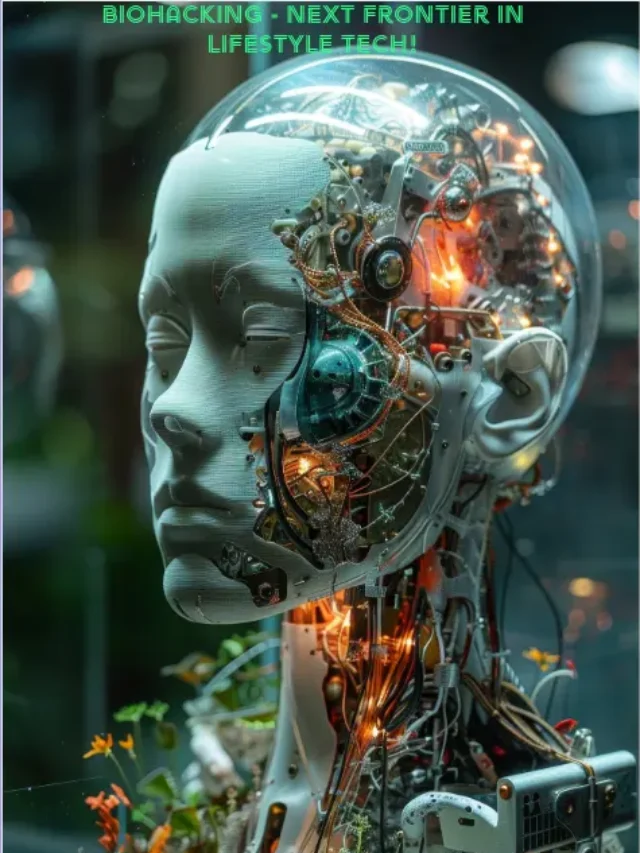Table of Contents:
Related Stories
As artificial intelligence (AI) continues to shape the future, ai ethics implications have become a focal point of discussion. The rise of AI technologies, from facial recognition systems to autonomous vehicles, has brought about numerous benefits. However, it has also raised significant ethical concerns. Understanding and addressing these concerns is crucial for ensuring that AI serves as a force for good, rather than a source of harm.
AI is transforming industries, reshaping economies, and impacting every aspect of society. As AI technologies continue to advance, the importance of AI ethics—the moral principles guiding the development and deployment of AI—has become increasingly critical.
This blog post delves into the ethical considerations of AI, exploring both its benefits and potential negative impacts, and emphasizing the importance of a balanced approach to AI ethics.
The Ethical Landscape of AI
AI ethics refers to the principles and guidelines that govern the development and deployment of AI systems. These principles aim to ensure that AI technologies are used responsibly, transparently, and in ways that respect human rights. The ethical landscape of AI encompasses a range of issues, including fairness, accountability, transparency, privacy, and the potential for AI to cause harm.
It seeks to ensure that AI technologies are used responsibly, fairly, and transparently, with respect for human rights and societal values. The field of AI ethics encompasses a wide range of issues, including bias and fairness, accountability, transparency, privacy, and the potential misuse of AI.
Fairness and Bias in AI
One of the most pressing ethical concerns in AI is the potential for bias. AI systems learn from data, and if that data is biased, the AI system will likely produce biased outcomes. This can lead to unfair treatment of individuals or groups, particularly in sensitive areas such as hiring, law enforcement, and lending. For example, facial recognition systems have been shown to have higher error rates for people of color, leading to concerns about racial bias.
To address this issue, it is essential to ensure that AI systems are trained on diverse and representative data sets. Additionally, developers must be vigilant in monitoring and mitigating bias in AI algorithms. Fairness in AI is not just a technical issue; it is a moral imperative that requires careful consideration and proactive measures.
Bias in AI not only undermines trust but also exacerbates social inequalities. To mitigate these risks, developers must prioritize the use of diverse, representative data sets and implement fairness-aware algorithms that can detect and correct biased outputs.
Accountability and Responsibility
As AI systems become more autonomous, questions about accountability and responsibility become increasingly complex. Who is responsible when an AI system makes a mistake or causes harm? Is it the developer, the user, or the AI itself? These questions highlight the need for clear guidelines and regulations that define accountability in the context of AI.
One approach to addressing this issue is through the concept of “human-in-the-loop” systems, where human oversight is maintained in critical decision-making processes. This ensures that AI systems are not operating in a vacuum and that humans remain responsible for the outcomes of AI-driven decisions.
Transparency and Explainability
Transparency in AI refers to the ability to understand how an AI system makes decisions. This is particularly important in areas such as healthcare and criminal justice, where the consequences of AI decisions can be life-altering. However, many AI systems, particularly those based on deep learning, are often described as “black boxes” because their decision-making processes are not easily interpretable.
To address this, there is a growing emphasis on developing AI systems that are explainable and transparent. Explainable AI (XAI) aims to make AI decisions more understandable to humans, enabling users to trust and verify the outcomes of AI systems. Transparency is crucial for building public trust in AI technologies and ensuring that they are used ethically.
The Benefits of Ethical AI
When developed and used ethically, AI has the potential to bring about significant benefits across various sectors. Ethical AI can lead to more equitable outcomes, improve efficiency, and enhance human decision-making.
For instance, in healthcare, AI can assist in diagnosing diseases more accurately and quickly, leading to better patient outcomes. In education, AI can personalize learning experiences, helping students achieve their full potential. In environmental conservation, AI can be used to monitor and protect endangered species, contributing to biodiversity preservation.
Moreover, ethical AI can help prevent misuse and ensure that AI technologies are used for the greater good. By adhering to ethical principles, organizations can avoid legal and reputational risks, while also contributing to societal well-being.
The Negative Impact of AI and Ethical Challenges
Despite its potential benefits, AI also poses significant risks and challenges that must be addressed to ensure ethical use. These include privacy concerns, the potential for job displacement, and the risk of AI being used for malicious purposes.
Privacy Concerns
AI technologies often rely on vast amounts of data, raising concerns about privacy and data security. The collection and use of personal data by AI systems can lead to violations of privacy, particularly if the data is used without consent or for purposes that individuals are not aware of. This is especially concerning in the context of surveillance technologies, where AI can be used to monitor individuals’ behavior without their knowledge.
To mitigate these risks, it is crucial to implement strong data protection measures and ensure that AI systems are designed with privacy in mind. This includes using techniques such as differential privacy, which allows AI systems to learn from data without revealing sensitive information about individuals.

Job Displacement and Economic Inequality
The automation of jobs through AI has the potential to displace workers and exacerbate economic inequality. While AI can increase productivity and create new opportunities, it can also lead to job losses, particularly in industries that rely on routine tasks. This raises ethical questions about how to ensure that the benefits of AI are distributed fairly and that workers who are displaced by AI have access to retraining and new job opportunities.
Addressing this challenge requires a multifaceted approach, including investing in education and training programs that prepare workers for the jobs of the future, as well as implementing social safety nets to support those who are affected by AI-driven automation.
AI for Malicious Purposes
AI has the potential to be used for malicious purposes, such as creating deepfakes, spreading misinformation, and conducting cyberattacks. These applications of AI pose significant ethical challenges and highlight the need for robust regulations and safeguards to prevent misuse.
For example, deepfake technology can be used to create realistic but fake videos or images, which can be used to deceive people and spread false information. This has serious implications for trust in digital media and can be used to manipulate public opinion or damage reputations.
To combat these threats, it is essential to develop AI systems that can detect and counteract malicious uses of AI. Additionally, policymakers must work to establish clear legal frameworks that hold individuals and organizations accountable for the misuse of AI technologies.

Conclusion
AI ethics is a complex and evolving field that requires ongoing attention and collaboration among developers, policymakers, and society at large. By adhering to ethical principles, we can ensure that AI technologies are developed and used in ways that benefit society while minimizing harm. The ethical use of AI is not just a technical challenge; it is a moral imperative that will shape the future of humanity.
External References:
- Binns, R. (2018). Fairness in Machine Learning: Lessons from Political Philosophy. Proceedings of the 2018 Conference on Fairness, Accountability, and Transparency.
- European Commission. (2020). White Paper on Artificial Intelligence – A European Approach to Excellence and Trust.
- Mittelstadt, B. D., Allo, P., Taddeo, M., Wachter, S., & Floridi, L. (2016). The ethics of algorithms: Mapping the debate. Big Data & Society.
- Russell, S., & Norvig, P. (2020). Artificial Intelligence: A Modern Approach (4th ed.). Pearson.
- Wachter, S., Mittelstadt, B., & Floridi, L. (2017). Why a right to explanation of automated decision-making does not exist in the General Data Protection Regulation. International Data Privacy Law.
By understanding the ethical implications of AI and working together to address them, we can ensure that AI technologies are developed and used in ways that respect human rights, promote fairness, and contribute to the betterment of society.












